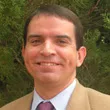Michael Cholbi Lecture

In Spring 2016, Michael Cholbi '94, professor of philosophy at California State Polytechnic University, returned to Swarthmore to discuss what it means to achieve self-knowledge. Many philosophers have held that self-knowledge — knowledge of our own beliefs, desires, values, emotions, or other mental attitudes — is uniquely or especially valuable. However, in contemporary philosophy, investigations of self-knowledge’s value have tended to take a backseat to investigations of the epistemology of self-knowledge. Much of our self-knowledge (for example, knowing that you believe you are wearing a hat) either does not seem uniquely or especially valuable. Furthermore, knowing that one has a particular mental attitude often appears no more valuable than having that attitude.
In this lecture, Cholbi attempts to provide a more substantive account of the distinctive value of self-knowledge. Self-knowledge is valuable to the extent that it is an achievement, in the sense recently articulated by Gwen Bradford: Some instances of self-knowledge are difficult but result from an individual competently exercising her causal aptitudes. In addition, many achievements require the acquisition of self-knowledge. There is therefore a reciprocal relation between distinctly valuable self-knowledge and achievement.
Cholbi is a professor of philosophy at California State Polytechnic University, Pomona. Cholbi's research is principally in ethics, with particular emphases on suicide, grief, punishment, Kantian ethics, paternalism, and moral psychology. His book, Suicide: The Philosophical Dimensions, was published in 2011 and was named a Choice Outstanding Academic Title. He has also published over 40 peer-reviewed articles, including articles in Mind, Philosophy and Phenomenological Research, Philosophical Studies, American Philosophical Quarterly, Ethics, and the Stanford Encyclopedia of Philosophy.
Cholbi graduated from Swarthmore with honors in philosophy and history and earned his Ph.D. from the University of Virginia.



